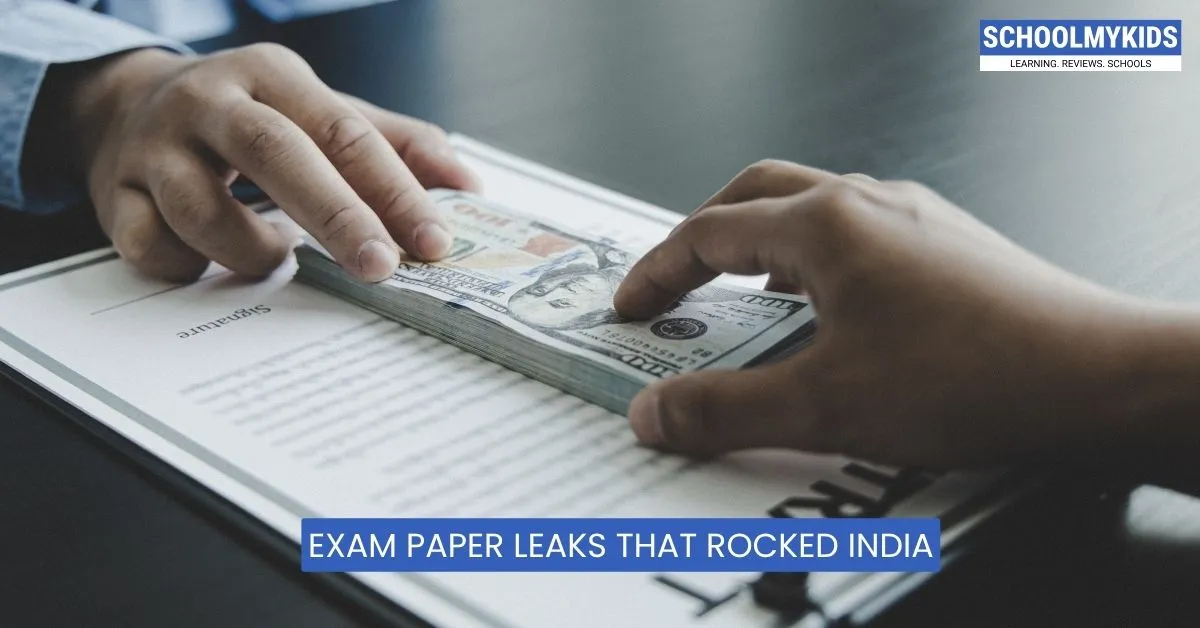Few things shatter the faith of millions of young Indians more than a compromised public examination. An exam paper leak is not just an administrative failure; it is a fundamental betrayal of the principle of meritocracy. It tells the most sincere and hardworking students that their efforts are worthless in the face of a corrupt system. For a nation where a government job or a seat in a prestigious college can define a person's entire life trajectory, paper leaks are a national crisis.
These scandals have become alarmingly frequent, perpetrated by organised rackets using methods that range from crude collusion to sophisticated high-tech operations. While countless exams have been compromised, some leaks were so audacious and widespread that they rocked the entire country, forcing re-examinations, prompting legal intervention, and exposing the deep rot within the system.
The Anatomy of an Exam Leak
Exam leaks are orchestrated crimes involving a chain of corrupt individuals. The most common methods include:
- Breach at the Source: Leaking the paper directly from the printing press or the secure vaults where they are stored.
- Transit Heist: Tampering with sealed exam paper boxes while they are being transported from banks to examination centers.
- Collusion at the Centre: Exam centre superintendents or invigilators opening the paper ahead of time, taking photos, and circulating them via apps like WhatsApp or Telegram.
- High-Tech Cheating: Using impersonators ("solvers") or transmitting answers to candidates in the exam hall via concealed electronic devices.
Here are four of the most infamous paper leak scandals that illustrate the devastating scale of this problem.
1. The Vyapam Scam: A Saga of Corruption and Death
While a multi-layered recruitment scam, the heart of the Vyapam scandal was the routine leaking of papers for medical entrance tests in Madhya Pradesh. This was not a one-time event but a systemic, decades-long operation that was finally unearthed in 2013. The methods were varied and brazen, including arranging "engine-bogie" systems where a paid 'engine' (a bright student) was seated between two 'bogies' (paying candidates) to facilitate copying. Answer sheets were left blank to be filled in later by corrupt officials. The most chilling aspect of the scam was the string of mysterious deaths—over 40 according to official counts—of accused individuals, whistleblowers, and journalists connected to the case, making it India's deadliest education scandal.
2. The 2015 AIPMT Leak: The High-Tech Heist
The All-India Pre-Medical Test (AIPMT) of 2015, the precursor to NEET, demonstrated how technology could be weaponised to compromise a national exam. An organised gang provided over 700 candidates across 10 states with specially designed vests fitted with micro SIM cards and Bluetooth receivers. The question paper was leaked from a centre in Haryana, solved by a team of experts in Rajasthan, and the answers were systematically transmitted to the candidates during the exam. The price for this service was reportedly between ₹15 to ₹20 lakh per student. The scale of the leak was so vast that the Supreme Court of India was forced to intervene, cancelling the entire examination and ordering a nationwide re-test for over 6.3 lakh students, stating that the exam's sanctity had been "denuded".
3. The 2018 CBSE Paper Leak: A National Embarrassment
This scandal brought the crisis of paper leaks directly into the homes of millions of middle-class families. In 2018, just hours before the exams, handwritten copies of the CBSE Class 12 Economics paper and the Class 10 Mathematics paper were found circulating on WhatsApp. The leaks caused nationwide panic and outrage, affecting over two million students. The Central Board of Secondary Education (CBSE) initially denied the leaks but was later forced to announce a re-examination for the Class 12 Economics paper. The incident was a massive embarrassment for the central education body and highlighted shocking vulnerabilities in the conduct of the world's largest school-leaving examinations.
4. The 2024 NEET-UG Controversy: A System Under Fire
The most recent scandal to shake the nation involved the National Eligibility cum Entrance Test (NEET-UG) 2024. The controversy erupted on multiple fronts: allegations of a paper leak in Patna, where students reportedly paid up to ₹50 lakh to get the question paper a day in advance; an unusually high number of students (67) scoring a perfect 720/720; and the questionable awarding of "grace marks" for loss of time. Evidence of burnt question papers found by Bihar Police, which matched the actual exam paper, pointed to a clear leak. While the Supreme Court acknowledged the leak was localised and ruled against a full re-examination for all 24 lakh students, the incident severely damaged the credibility of the National Testing Agency (NTA) and led to nationwide protests and calls for systemic reform.
Conclusion: The Unbearable Cost of Betrayal
Exam paper leaks inflict a wound far deeper than the logistical nightmare of a re-test. They cause immense mental and financial trauma to honest students who spend years preparing in good faith. They devalue merit, promote a culture of cynicism, and leave an entire generation questioning the fairness of the system. Each leak that goes unpunished tells the youth that integrity is for the foolish and that shortcuts are for the smart. Tackling this menace requires more than just catching the culprits; it demands a fundamental overhaul to restore the sanctity of examinations and the trust of India's students.








Be the first one to comment on this story.